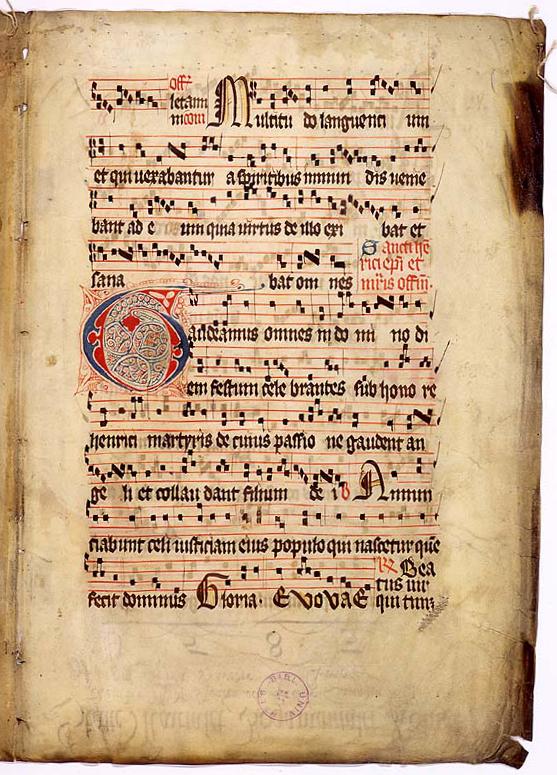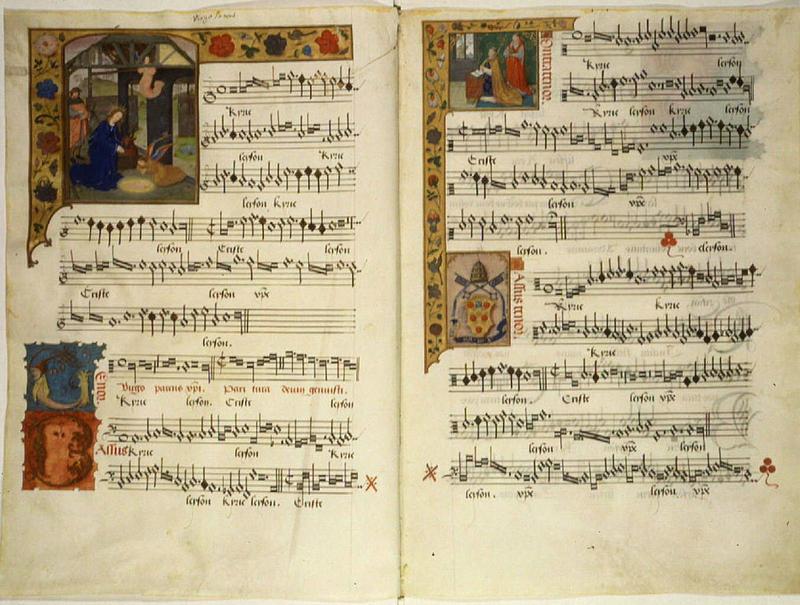
 |
|
#16
|
||||
|
||||
|
I wish,, I am an absolute hunt and peck klutz
__________________
Enjoy the Journey.... Kev... KevWind at Soundcloud KevWind at YouYube https://www.youtube.com/playlist?lis...EZxkPKyieOTgRD System : Studio system Avid Carbon interface , PT Ultimate 2023.12 -Mid 2020 iMac 27" 3.8GHz 8-core i7 10th Gen ,, Ventura 13.2.1 Mobile MBP M1 Pro , PT Ultimate 2023.12 Sonoma 14.4 |
|
#17
|
|||
|
|||
|
Quote:
TAB doesn't really tell as much of the whole story in that example, if you notice. The two half melody notes in the first measure, followed by the dotted rhythm in the second measure, and resolving in the last. Those are important things to key on when phrasing the piece, or singing it in your head. TAB doesn't provide you those melodic clues with just those finger placement numbers. But as you also say, if you've heard the piece, it allows you to put the package together better. Notation makes "sight reading" possible, whereas TAB is more challenged in this regard. And it has nothing to do with your musicianship. It's possible for you to be as good if not better than a competent sight reader. How you play taps in to a different kind of skill set. 
__________________
Best regards, Andre Golf is pretty simple. It's just not that easy. - Paul Azinger "It ainít what you donít know that gets you into trouble. Itís what you know for sure that just ainít so." Ė Mark Twain http://www.youtube.com/user/Gitfiddlemann |
|
#18
|
||||
|
||||
|
duplicate post
__________________
Derek Coombs Youtube -> Website -> Music -> Tabs Guitars by Mark Blanchard, Albert&Mueller, Paul Woolson, Collings, Composite Acoustics, and Derek Coombs "Reality is that which when you stop believing in it, doesn't go away." Woods hands pick by eye and ear
Made to one with pride and love To be that we hold so dear A voice from heavens above Last edited by rick-slo; 06-19-2021 at 09:18 AM. |
|
#19
|
||||
|
||||
|
Your tab example has all the timing info for that piece as does
Haasome's for his example.
__________________
Derek Coombs Youtube -> Website -> Music -> Tabs Guitars by Mark Blanchard, Albert&Mueller, Paul Woolson, Collings, Composite Acoustics, and Derek Coombs "Reality is that which when you stop believing in it, doesn't go away." Woods hands pick by eye and ear
Made to one with pride and love To be that we hold so dear A voice from heavens above |
|
#20
|
|||
|
|||
|
Yes, but that's cheating!
 You have the tab for the finger positions, and the staff notation for the timing and rhythms. Belt and braces! You have the tab for the finger positions, and the staff notation for the timing and rhythms. Belt and braces!But that's how I like to see it too. It's how I write out music for my students, and also how I prepare guitar transcriptions for publication. The only disadvantage is the extra space it takes up. I probably read notation slightly faster, but actually I'm reading different information - I mean subconsciously. The staff notation is showing me how it sounds, and I see that before I recognise how to play it. With a simple line (simpler than that example), I would play it before looking at the tab. But with a piece like that, the tab will certainly speed up my approach to playing it - in that it will give me one choice for where to put my fingers, saving me working out the best position. Quote:
 Right. One certainly does need to hear it if one only has tab with no rhythms on it. With the example you posted, I would not have to, because the notation is telling me all I need to know (that the tab isn't). I'd still like to hear the original, though - if only to confirm for myself that the transcription is correct! And of course there are elements in the music that notation can't convey (or rarely does outside of classical notation), such as dynamics, expression, and so on.
__________________
"There is a crack in everything. That's how the light gets in." - Leonard Cohen. |
|
#21
|
||||
|
||||
|
Quote:
I can tell you that this is an e note, this is a quarter note, 16th, etc., but I can't translate that into music without hearing the tune first unless its very, very simple. Probably because I have no training with a metronome or with an instructor on that subject. I'd have to set a metronome to 80 bpm for instance, and play something simple to get the feel for the quarters and eighths relative durations. I'd be totally immersed in trying to stay on pace with the metronome and not really even hearing what I was playing. I learn best by playing along with a tune that I'm trying to learn. If I were to start learning guitar all over again and was a teenager, that'll probably be what I would do (metronome work).
__________________
Barry My SoundCloud page Avalon L-320C, Guild D-120, Martin D-16GT, McIlroy A20, Pellerin SJ CW Cordobas - C5, Fusion 12 Orchestra, C12, Stage Traditional Alvarez AP66SB, Seagull Folk Aria {Johann Logy}: |
|
#22
|
||||
|
||||
|
But what happens when you show up for a gig with people you don't know and music you've never heard and have to perform with just a couple rehearsals? This happens in studio and theater work on a regular basis and there is no TAB. The last theater run I did was 58 pages and we rehearsed it twice before opening night and nailed it. Everyone, including the drummer, was a reader. It seems that, since the days of the big bands, everyone (except piano players) has decided that it's unnecessary to learn standard notation. Not sure why as it's really not difficult and this mindset seems to only apply to pop and rock music - classical players still read standard notation.
__________________
2022 Brook Lyn Custom, 2014 Martin 000-18, 2022 Ibanez GB10, several homebrew Teles, Evans RE200 amp, Quilter 101R and various speaker cabinets, Very understanding wife of 48 years |
|
#23
|
|||
|
|||
|
Quote:
If one wants to be a professional, and make oneself available for that kind of work, standard notation is 100% essential. It would be plain silly not to learn it, and to learn it well enough to sight-read. But there are still huge advantages for tab - sight-readable or not - in more leisurely, informal and amateur scenarios. Personally, I learned how to read notation in school aged 11, before I was ever interested in music. When I began teaching myself guitar, a few years later, I found it invaluable for learning from songbooks. Tab did not exist back then, and if I hadn't been able to read I might have even given up guitar after a while - frustrated at not being able to learn as many songs as I did (my ear not being great back then). Knowing notation also meant I could write down my own (crap) compositions, which made me feel good! 
__________________
"There is a crack in everything. That's how the light gets in." - Leonard Cohen. |
|
#24
|
||||
|
||||
|
Quote:
__________________
Derek Coombs Youtube -> Website -> Music -> Tabs Guitars by Mark Blanchard, Albert&Mueller, Paul Woolson, Collings, Composite Acoustics, and Derek Coombs "Reality is that which when you stop believing in it, doesn't go away." Woods hands pick by eye and ear
Made to one with pride and love To be that we hold so dear A voice from heavens above |
|
#25
|
|||
|
|||
|
A very useful use of TAB, although perhaps not in the setting that Skip described, comes when learning a piece in an alternate tuning or one that deviates a lot from standard. This happens quite a bit in the steel string, modern fingerstyle genre.
Some people, like John Stropes, have transformed TAB to a high art. So much so that the TAB becomes an essential component of the entire musical score, and where notation alone would be hard pressed to capture all the elements in the music itself. By having both the notation and TAB complement each other, presentation of the material also becomes less cluttered, and easier to "read". So it certainly does have its place, just as it did hundreds of years ago before notation was invented.
__________________
Best regards, Andre Golf is pretty simple. It's just not that easy. - Paul Azinger "It ainít what you donít know that gets you into trouble. Itís what you know for sure that just ainít so." Ė Mark Twain http://www.youtube.com/user/Gitfiddlemann |
|
#26
|
|||
|
|||
|
Quote:
There's similar reasons why tab makes a lot of sense for banjo and ukulele pieces. The high G on both instruments means that standard notation gives a misleading impression, at least for a guitar player - we're used to the thumb string(s) being bass notes, low on the stave. Personally, although I prefer notation to tab for guitar (even for some alternative tunings), I find tab better for banjo at least. Hold on though. Standard notation was invented around 1000 AD - in crude form, admittedly, but AFAIK tablature didn't arrive until later, at least not for lutes, which were Renaissance instruments.
__________________
"There is a crack in everything. That's how the light gets in." - Leonard Cohen. |
|
#27
|
|||
|
|||
|
Quote:
  I just looked these up. The above are excerpts from religious music in the year 1025 accompanying prayers from religious services. And they are a very early form of notation as you state. OK, I stand corrected. I was actually thinking of modern notation as an evolution of the tablature used in Renaissance lute music when I wrote the above. But I was unaware that this primitive form of notation existed before the advent of tablature. So thanks for the education! 
__________________
Best regards, Andre Golf is pretty simple. It's just not that easy. - Paul Azinger "It ainít what you donít know that gets you into trouble. Itís what you know for sure that just ainít so." Ė Mark Twain http://www.youtube.com/user/Gitfiddlemann |